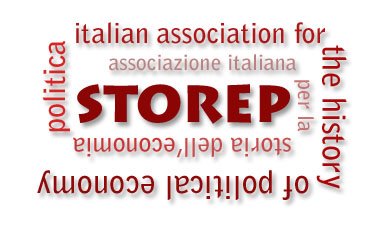The History Department of Lang College and the New School for Social Research and the Culture of the Market Network of the University of Manchester are pleased to announce a conference on Power and the History of Capitalism, to be held April 15-16, 2011 at the New School in New York City.
Purpose
This conference seeks to sharpen our long-term historical perspective on relations of power, politics, and modern capitalism, with a special emphasis on United States history from the eighteenth to the twenty-first century. We ask how capitalism and its periodic crises have revised political rights and responsibilities, reconfigured political practices and institutions, and redistributed wealth. Conversely, we aim to analyze how power relations – whether organized by state policy and laws, structured by social norms and institutions, articulated in ideology, or embedded within racial, gender and class relations -- have shaped economic outcomes. The ongoing crises of contemporary capitalism – as well as the heightened emphasis on questions of power within the social sciences and humanities – invest these questions with new urgency.
This event will be the third meeting of the Culture of the Market Network, a two-year collaboration between the University of Manchester, Oxford University, the New School, and Harvard University. The Network brings together an international group of scholars from the humanities and social sciences to investigate in four conferences how economic ideas, institutions, practices and objects are embedded in the wider culture. The project also aims to reinsert the study of markets, finance and business into mainstream history.
Conference Themes and Topics
Organizers of the conference solicit papers that will examine the mutual constitution of political and economic systems in the United States. Possible themes and topics may include:
• Relation between capitalist development and political revolution
• The socio-political origins and consequences of monetary standards and policy
• The rise and fall of the Fordist political-economic paradigm
• The recurring collapses and resurgences of financial capitalism
• The distribution of power among the institutions of capitalism
• The salience of racial, gender, and class relations for structuring economic power
• The ability of economic and financial globalization to challenge or to sustain the economic boundaries and policies of nation-states
• Concepts of economic citizenship
• The relationship between economic crisis, popular insurgency, and social change
• Hegemony of -- and competition between -- capitalist elites
• The substitution of market relations for social policy
• The capacity of economic theories to operate as political ideology and to shape the reality they purport to describe
• The institutions that incubate ideologies of the market
• Finance as a mode of governmentality
• The role of the economics discipline in policy-making
• The role of policies, laws, and norms in structuring markets in ways that produce particular distributional outcomes.
• Forms of labor and their management
• Theories and practice of corporate governance
• Debates over the proper relationship between the financial markets, the state, and the real economy
Submissions
Proposals for papers must include the following information:
• Title
• Maximum 250 word summary of proposed paper
• 1 page CV including author’s name, address, telephone, email, and institutional affiliation
All proposals must be sent to powerandhistoryofcapitalism@gmail.com no later than October 1, 2010.
Notification will be sent November 1, 2010.
Further Information
http://www.arts.manchester.ac.uk/cultureofthemarket/
Julia Ott
The New School
Committee on Historical Studies
80 Fifth Avenue
New York, NY 10011
Email: powerandhistoryofcapitalism@gmail.com
Argomenti
bandi
(52)
benvenuto
(1)
blog e forum
(24)
convegni
(285)
novità editoriali
(74)
premi
(3)
riviste
(163)
seminari
(59)
Storep attività
(80)
summerschool
(14)
